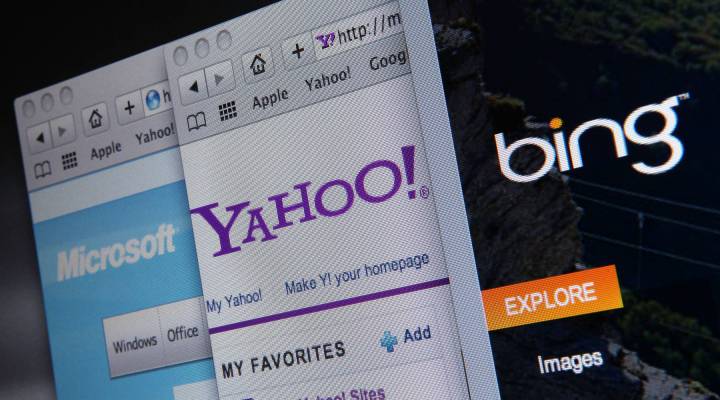
Data brokers set the price tag on your head

Big data is the topic at issue in a report issued by the Federal Trade Commission this week.
To be more specific, the FTC took a deep dive into the business of data brokers. Data brokers collect information on us, create profiles using that data and sell those profiles to marketers and other entities. The facts the FTC collected were pretty mind boggling—one data broker it looked at had 3,000 pieces of data on nearly every U.S. consumer; another had more than 1 billion transactions in its data bases.
Data brokers gather up or buy bits of information about us: public records, online purchases, social media posts, trips to the drug store.
“There’s thousands and thousands of data elements on each consumer,” says Jessica Rich, Director of the Bureau for Consumer Protection at the Federal Trade Commission. She says data brokers use the information to slot us into categories, which they sell to marketers. “The level of specificity and detail are mind-boggling. They have ‘Urban Scramble’, which is a category referring to low income and minority consumers; they have ‘Thrifty Elders’; they have ‘Diabetes Interest’; ‘Bible Lifestyle’… ‘Biker Lifestyle’.”
This information is used in all kinds of ways–to show us ads for things we’re likely to be interested in and to set insurance premiums and interest rates. Good luck getting life insurance if you fall into the ‘Biker Lifestyle’ category,” says Rich.
“More and more, the stories that are told about us are told through numbers and the collection of data about us,” says Joseph Turow, a professor at the University of Pennsylvania’s Annenberg School for Communication and author of “The Daily You: How the New Advertising Industry Is Defining Your Identity and Your Worth“. “Some of those stories help people–some prevent fraud, but, like the FTC report says, a lot of them may be dangerous for us and for the kinds of opportunities we have in life.”
The FTC report calls on Congress to require data brokers to be transparent and allow consumers to see the data that’s been collected on them. They’re also supposed to have the ability to opt out of having that data sold and used for marketing.
“At the end of the day, The FTC makes some pretty good points,” says Russell Glass, CEO of Bizo, a data-profiling company that specializes in business professionals. It sells those profiles to more than 1,000 clients, including American Express and UPS. Bizo gets its information from about 2,000 sources, and it shares its revenue with them. Glass says a little regulation in the industry would be a good thing.
“Nobody really knows what the rules are,” says Glass. “There’s this self-regulation that some people follow and some people don’t. Some degree of smart regulation, I think that would be a net positive for the industry. Right now a lot of this is the monster under the bed syndrome. Right? Where everything seems really scary in the dark.”
Bizo lets the 190 million businesspeople it profiles see the data it’s collected on them and gives them the choice of opting up. Glass says fewer than 1 percent of the people who look at their profiles opt out. He says the rest want the convenience and the tailored marketing that comes with a data profile.
If you want to see your Bizo profile, check it out right here.
There’s a lot happening in the world. Through it all, Marketplace is here for you.
You rely on Marketplace to break down the world’s events and tell you how it affects you in a fact-based, approachable way. We rely on your financial support to keep making that possible.
Your donation today powers the independent journalism that you rely on. For just $5/month, you can help sustain Marketplace so we can keep reporting on the things that matter to you.












